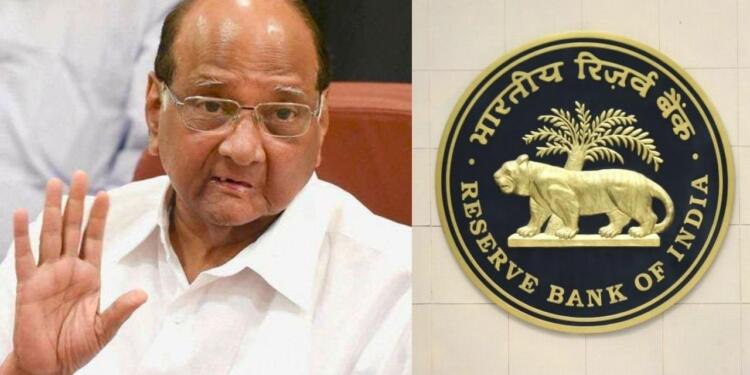In a step that would further weaken the hold of NCP over cooperative banks, RBI has harmonised the rules for the appointment of CEO of Urban Cooperative Banks (UCBs) with Scheduled Commercial Banks (SCBs). This means that MPs, MLAs, representatives of Panchayats or municipal boards, people involved in business and trade, or those who have a substantial stake in any company would not be eligible to become CEO of UCBs.
“The person shall have a combined experience of at least eight years at the middle/senior management level in the banking sector (including the experience gained in the concerned UCB) or non-banking finance companies engaged in lending (loan companies) and asset financing,” the notification by RBI reads.
NCP politicians are involved in the management of cooperative banks, and it is partly the reason why every year, news of fraud worth thousands of crores used to be unearthed from such banks. In Maharashtra, NCP, which was in power for years, had put a state guarantee on loans given by these banks. This meant that the local politicians who controlled the management of these banks would get loans worth crores from these banks and in absence of any real authority, would often not default on the payback.
The Fadnavis government ended the state guarantee on the loans provided by UCBs, but when the tri-party alliance came to power, it was again enacted, possibly at the behest of NCP.
So far, these banks were under dual authority with the power to appoint or change the management with the board and other regulatory functions lying with RBI. After the government order, 1,482 urban cooperative banks and 58 multi-state cooperative banks have come under the direct supervision of RBI.
In the last few months, Sharad Pawar has successively raised questions over RBI taking over the regulation of the cooperative banks, with the Prime Minister’s Office, as well as in the media.
I have written a letter to Hon. @PMOIndia Shri @narendramodi to express my deep concern about the preservation of the ‘Co-operative’ character of Co-operative banks having legacy of more than 100 years. pic.twitter.com/CZ6IBu4kZ1
— Sharad Pawar (@PawarSpeaks) August 18, 2020
Previously, Sharad Pawar had been booked by the Enforcement Directorate (ED) in 25,000 crore rupees money laundering case in September last year. ED registered a case against Sharad Pawar, his nephew Ajit Pawar and 70 other officials under the Prevention of Money Laundering Act (PMLA).
The members of the Pawar family, and many other leaders of Congress-NCP, the coalition which ruled the state for one and a half decades, were reportedly involved in the 25,000 crore rupees Maharashtra State Co-operative (MSC) Bank scam.
The MSC bank gave loans to office bearers and directors of local co-operative sugar factories (CSFs) between 2001 and 2011, and this led to a 25,000 crore rupees scam. The loans were sanctioned fraudulently, and there was a conflict of interest in sanctioning them.
The Pawar family is the best example of how politicians use public offices to reap economic dividends. Sharad Pawar built the political and business empire by influencing agriculture and related industries through policy manipulation. The cooperative banks, sugar mills, agriculture market produce committee (APMC) were the instruments for Sharad Pawar to build the power base of the politics of the state.
Now, with the complete control of banks in hands of RBI, the politicians fear losing out on easy money that these banks churned for them consistently. The latest RBI directive would fully break the cooperative banks and cooperative sugar factories nexus through which Sharad Pawar and his party flourished in the last few decades.
